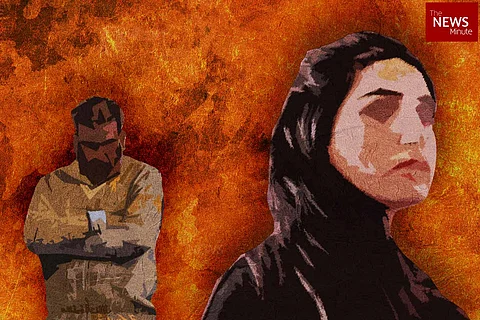

The Supreme Court on Monday, January 16, sought a response from the Union government on a batch of petitions pertaining to criminalisation of marital rape. A bench comprising Chief Justice of India DY Chandrachud and Justices PS Narasimha and JB Pardiwala asked the Union government to file its response on the issue by February 15. The final hearing on the pleas would commence from March 21.
The top court decided to take up the matter itself instead of letting different high courts take a call. The matter will be listed for hearing in March, and the bench directed all parties to file their written submissions by March 3. One of the pleas has been filed in relation to the Delhi High Court's split verdict on the issue. This appeal has been filed by Khushboo Saifi, one of the petitioners before the Delhi High Court.
The Delhi High Court on May 11 last year had delivered a split verdict on the issue. However, both the judges on the bench – Justices Rajiv Shakdher and C Hari Shankar – had concurred with granting a certificate of leave to appeal to the Supreme Court in the matter as it involves substantial questions of law which requires a decision from the top court.
While Justice Shakdher, who headed the division bench, favoured striking down the exception granted to husbands from the offence of rape for being "unconstitutional" saying it would be "tragic if a married woman's call for justice is not heard even after 162 years" since the enactment of the Indian Penal Code (IPC), Justice Shankar said that the exception was not unconstitutional and “based on an intelligible differentia."
Another plea has been filed by a man against a Karnataka High Court verdict which had paved the way for his prosecution for allegedly raping his wife. The Karnataka High Court had on March 23 last year said that exempting a husband from an allegation of rape and ‘unnatural sex’ with his wife runs against Article 14 (equality before law) of the Constitution. A few other pleas have also been filed in the apex court on the issue.
Some petitioners have challenged the constitutionality of the marital rape exception under Section 375 IPC (rape) on grounds that it discriminated against married women who are sexually assaulted by their husbands. Under the exception given in Section 375 of the IPC, sexual intercourse or sexual acts by a man with his wife, the wife not being minor, is not rape.